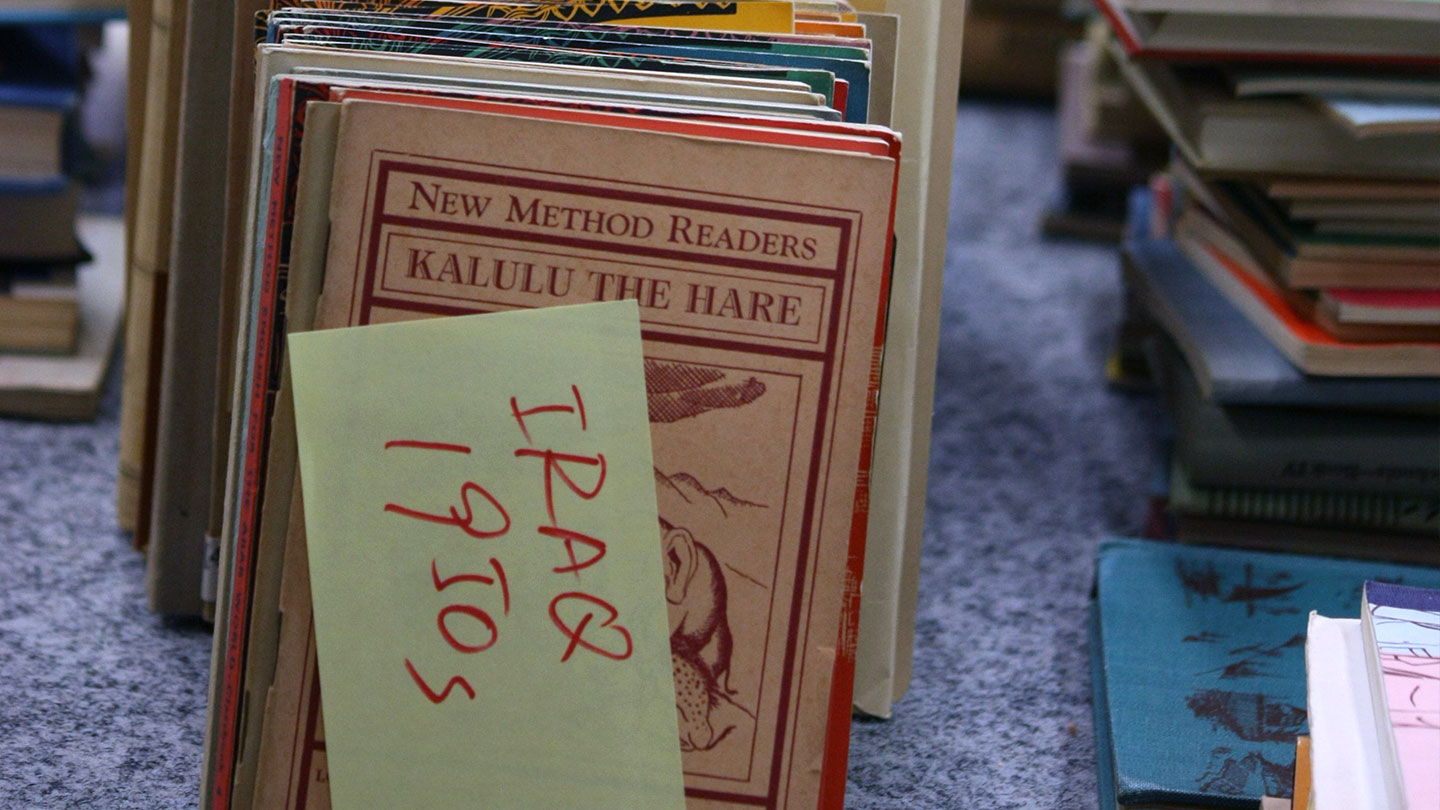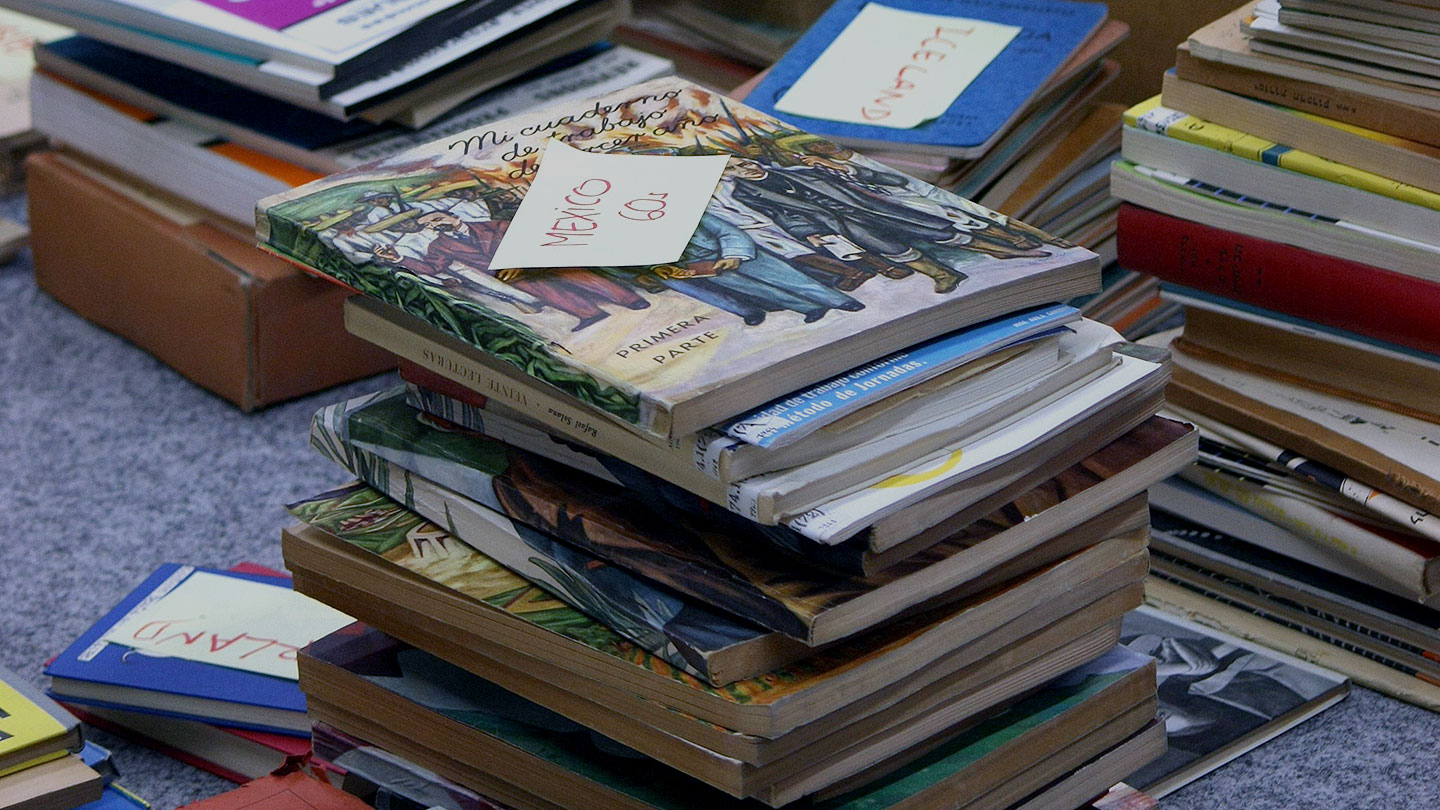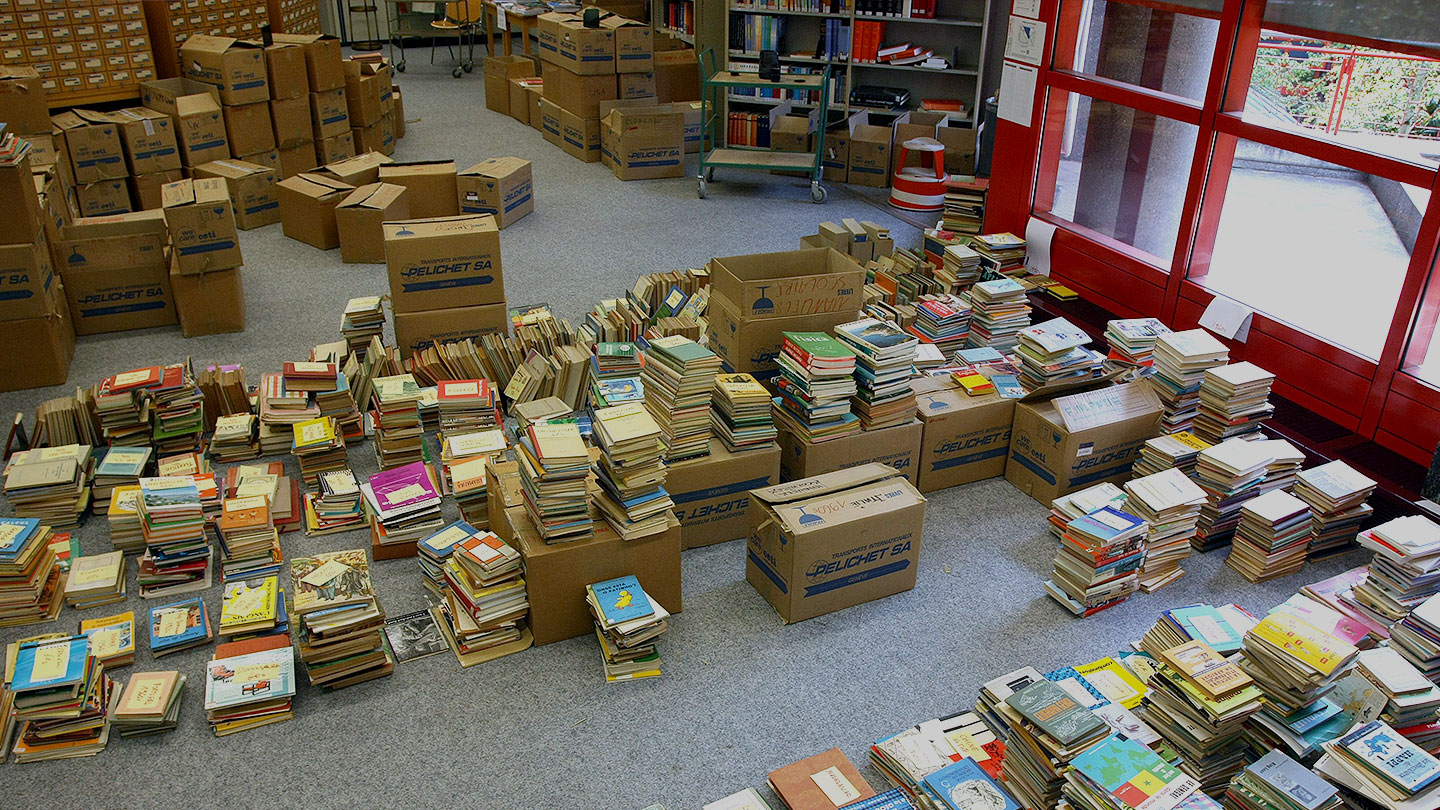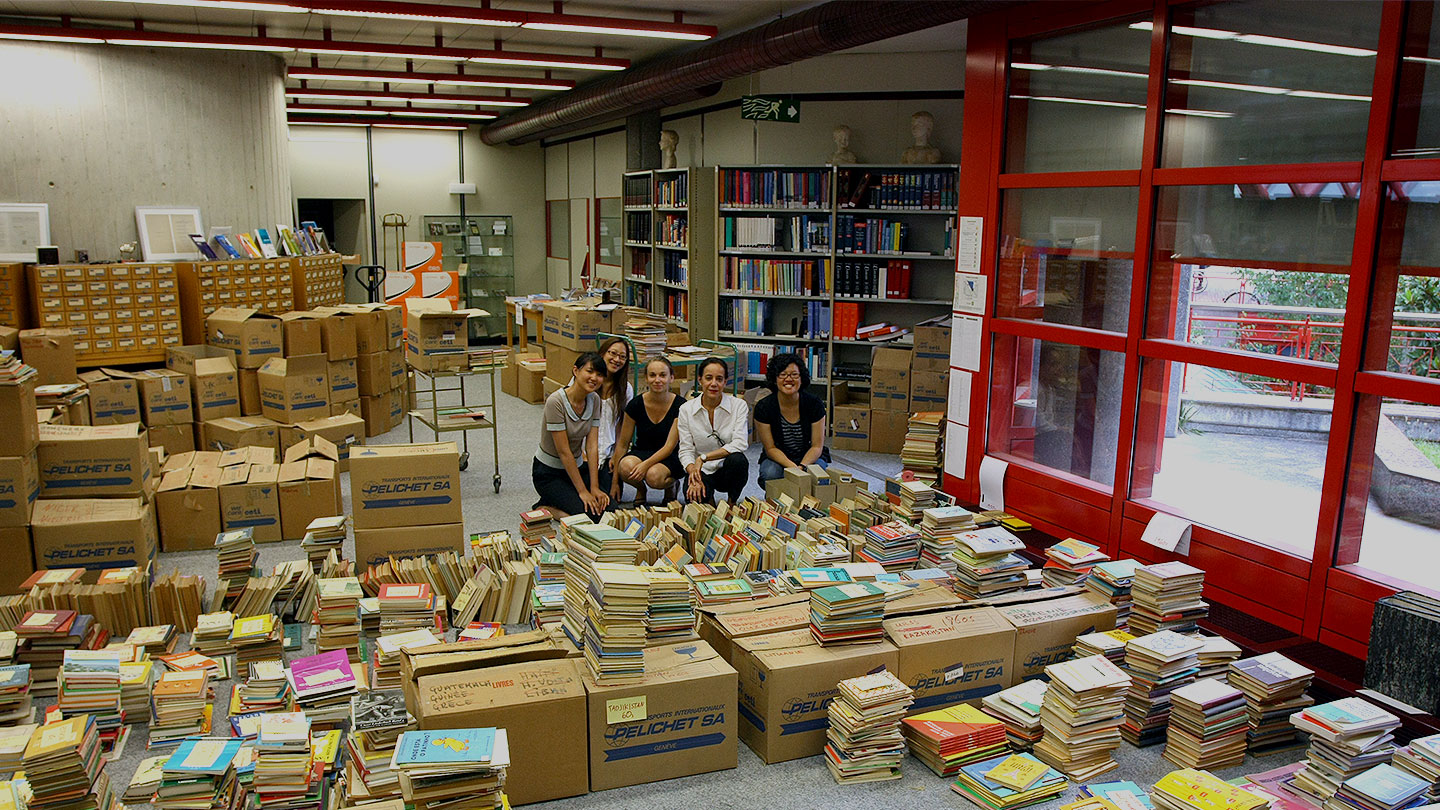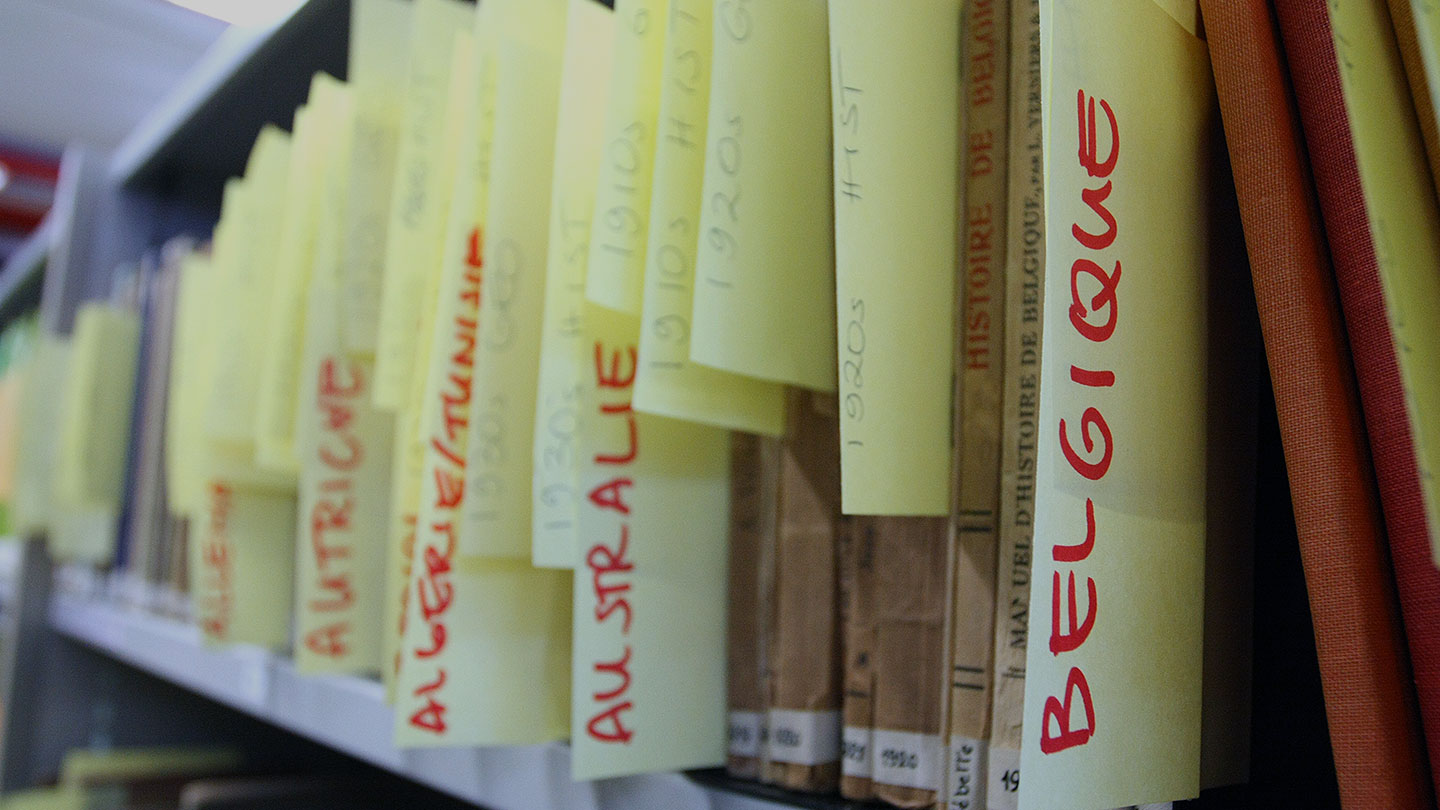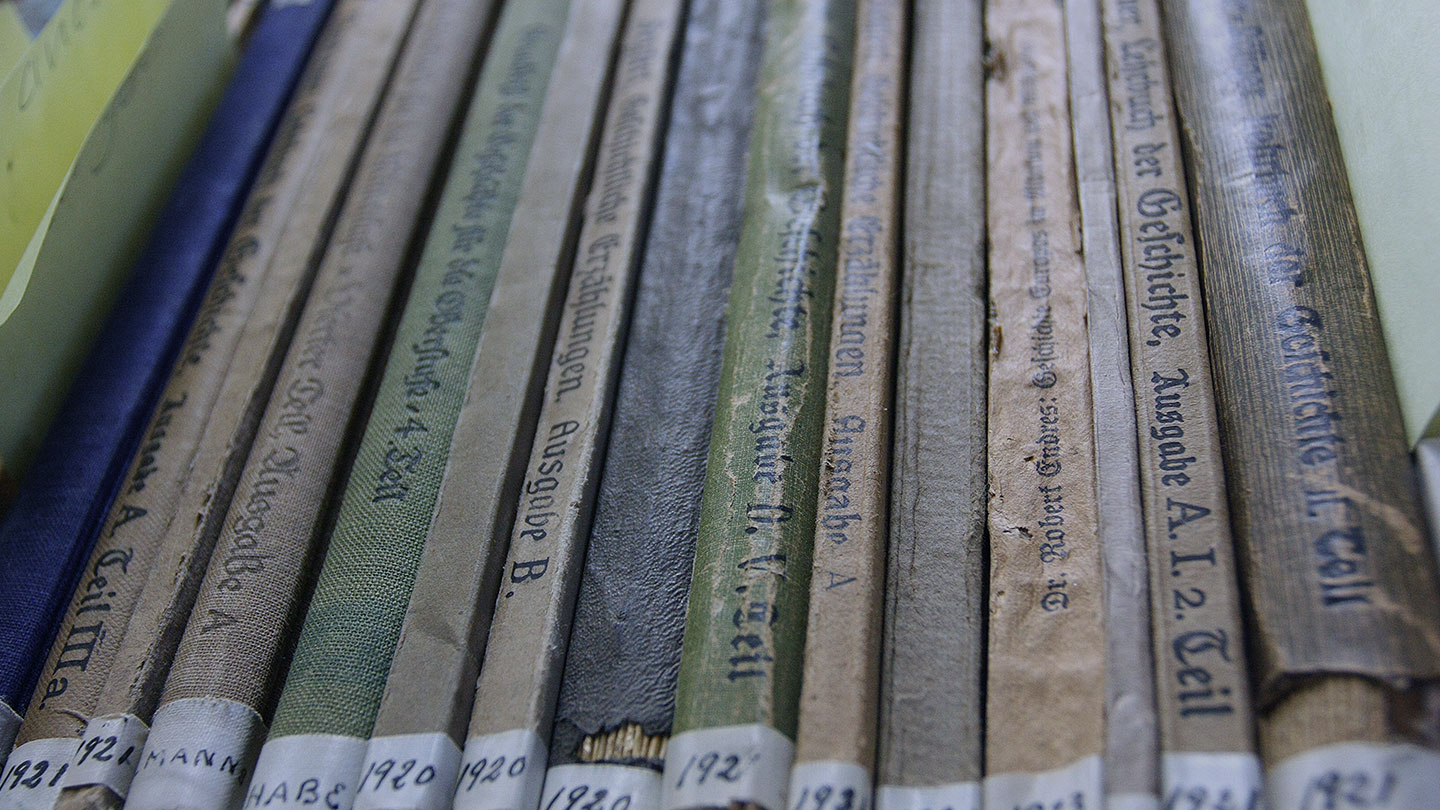ABOUT THE PROJECT
Digitization Project
The IBE Digital Collections provides free, public access to digitized materials from the IBE Historical Collections. The digitized works can be accessed through TIND public interface.
In 2014, the International Bureau of Education (IBE) embarked upon the digitalization of its historical archives the collection of historic textbooks. The IBE long-term goal is to create digital records of these materials and to make full-text versions of them freely available to users around the world. A further goal of the project is the long-term preservation of these unique materials. So far, the IBE has completely digitized the institutional archives of the International Bureau of Education from 1925 to 1969, as well as an important part of its historical textbook collection. The current phase of the project is focusing on out-of-copyright works published since the inception of the textbook genre in the seventeenth century.
OBJECTIVES OF THE DIGITIZATION PROJECT
PRESERVE
Preserve rare historical documents and enhance preservation efforts by reducing the handling of original documents.
FACILITATE
Facilitate access to research data for education specialists, historians of education, teachers, and students.
ENHANCE
Enhance public access to unique educational materials offering historical perspectives to shape educational programs and curricula.
Project progress
Phase One saw the digitization of the entire IBE Historical Archives: 1925-1969. Out of 2,573 dossiers, all have been re-cataloged according to international standards, i.e., ISAD(G), and 2,562 have been digitized (99.5%).
Phase Two focuses on the IBE Historical Textbook Collection. Out of 25,000 textbooks, a selection of 4,782 books has been digitized.
At a glance: UNESCO IBE Historical Collections
25k
TEXTBOOKS
Textbooks, teacher manuals, atlases, and other learning materials on different subjects, published between 1700 and 1960.
+2k
FILES
Internal documents of historical importance, dating from the foundation of the IBE until 1969.
20K
PUBLICATIONS
International books, journals, and brochures, published between 1800 and 1960, and representing a large number of countries and languages.
140
COUNTRIES
A myriad of countries represented in the textbook collection. Some of them no longer exist today, changed their names, have been absorbed by another political regime, or gained independence.
104
LANGUAGES
Rich linguistic diversity of materials within the IBE textbook collection, some of them considered by UNESCO to be endangered and at high risk of disappearing.
+50
SUBJECTS
A wide range of subject textbooks and teaching guides for K-12, vocational training, and adult education and literacy. They are the closest proxy to what education is like at a given point in time.
DIGITIZATION PROJECT TEAM
Program Specialist
Associate Documentalist
Associate Archivist
Historian
The IBE is
deeply
grateful to:
Clementina Acedo
IBE Director (2007-2014)
For unveiling the historical textbook collection, recognizing its exceptionality, and initiating the digitization project.
Mmantsetsa Marope
IBE Director (2015-2020)
For bringing extraordinary people and ideas together, to start and complete the digitization of the IBE historical archives (1925-1969).
Key people involved in the ibe digitization project
 Andrew Martrich
Andrew Martrich Ruth Creamer
Ruth Creamer Alex Renault
Alex Renault Lukas Schemper
Lukas Schemper Gudrun Beger
Gudrun Beger Hiromi Kasahara
Hiromi Kasahara Maxime Sansonnens
Maxime Sansonnens Lou Bauholi Both Cklay Kohemun
Lou Bauholi Both Cklay Kohemun Elisabeth Glauser
Elisabeth Glauser Kseniia Fontaine
Kseniia Fontaine Massimo Amadio
Massimo AmadioIn memoriam
 Nadia Markova
Nadia Markova Eric Lafif
Eric Lafif Riina Turtio
Riina Turtio Melina Vargas
Melina VargasDocumenting
the IBE’s
Digitization
Project
As an archivist, I tend to view each material as precious in terms of how it informs its collection. However, I will say that it’s been a humbling experience to work with materials in endangered languages, such as Chukchi, Modenese, and Kaonde. In some cases, we may only have one or two books in these languages, but some of the collections are more significant. For example, we were able to digitize a decent selection of textbooks in Irish Gaelic, which has an estimated 44,000 speakers worldwide and is considered by UNESCO to be “definitely endangered”. These books are now accessible to the public—and it’s an honor to be a part of that process.
Andrew Martrich
IBE Archivist
The International Bureau of Education (IBE-UNESCO) is a UNESCO Category 1 institute mandated as the Centre of Excellence in curriculum and related matters.
The IBE-UNESCO provides tailored technical support and expertise to all UNESCO Member States, facilitating the provision and delivery of equitable, inclusive, high quality education within the framework of Education 2030 Agenda.
